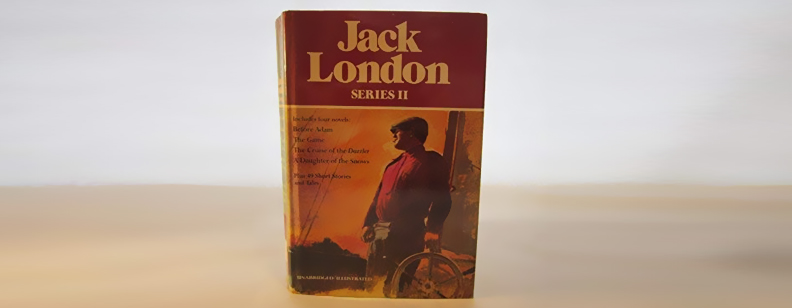In the latter half of the nineteenth century, commerce dominated the American economy. The country was seething with increasing industrialization and mechanization after the civil war and soon produced a lot of wealth, many people made amazing profits during the prosperous war-time economy. However beneath the glittering surface of prosperity, there lay depression and unhappiness. Disillusionment and frustration were widely felt. What had been expected to be a “Gold Age” turned out to be “Gilded” time.
Through the views of Buck and White Fang, Jack London reveals the ugliness of this society. In the opening chapter of these two novels, Jack London unfolds two different worlds before us. One is civilized, well-defined by gentility, order and rules and embodied by Judge Miller’s sprawling home in the sun-kissed Santa Clara Valley.
One is wild, savage, frozen-hearted, where the animals are free from men’s control, and there are profound implications in these pictures.
Through The Call of the Wild, Jack London expressed his strong dissatisfaction with reality. He denied the present society from the following aspects:
- Disaffection with the upper class
In the beginning of The Call of the Wild, Jack London describes a very happy and free life, where everything is in order and Buck dominates the entire region. “The whole realm was his. He plunged into the swimming tank or went hunting with the Judge’s sons; he escorted Mollie and Alice, the Judge’s daughters, on long twilight or early morning rambles; on his back, or rolled them in the grass, and guarded their footsteps through wild adventures down to the fountain in the stable yard…”
In this word, Buck is a pet rather than a servant, and he does nothing but lives a luxurious and content life at his own will without struggle nor burdens that must be born. Everything seems wonderful and at ease. In fact, it is an unfair world, where Buck gains his domination through heritage, instead of his own effort, his father “had been the Judge’s inseparable companion”, so Buck “bid fair to follow in the way of his father”.
Buck lives a life of a stated aristocrat. At this aspect, Buck is the very embodiment of the upper-class, as his life is similar with the rich men, who are enjoying the best life, while doing the least work. This little world where Buck is brought to the light is the epitome of the present high society in which every one is “civilized”. And from Buck, London reveals the essence of the capitalistic society where the upper class enjoys an extremely luxurious life and cares nothing but their own interests.
To be continued…



